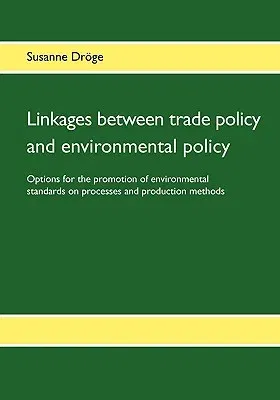This book looks into areas in which the relationship between
environmental policy and trade policy at the international level is
unresolved and subject to debates and negotiations. Most controversial
is the treatment of standards on processes and production methods (PPMs)
when a product is traded. Should the way a product is manufactured or
the resources being exploited in this process be considered when
allowing market access - although the product itself does not exhibit
these information? According to the principles and rules of the World
Trade Organization the answer is "yes". Exemptions, yet possible, are
not clearly defined and need case-by-case legal judgements in order to
become more applicable. This book argues that international
environmental agreements deliver the necessary background for
environmentally motivated trade measures but still lack the legal power
to be considered ex ante. The only viable policy instrument that helps
to make the hidden environmental effects of traded goods more
transparent are labels and certificates. Thus, the book focuses on three
aspects: First, how do the multilateral environmental agreements which
explicitly include trade measures relate to WTO rules? Second, could the
integration of negotiations in the two policy fields induce a more
efficient outcome with respect to trade rules and to environmental
protection? And third, could ecological labels deliver a solution to
potential trade rule conflicts inherent to different national treatment
of so-called like products which differ in their production processes?


